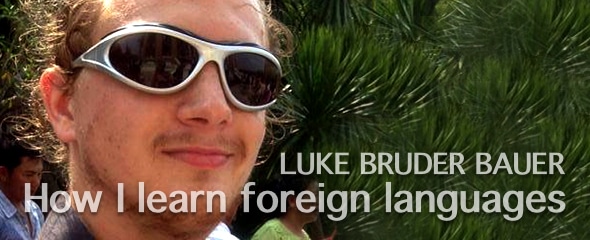
This article was originally posted on WomenLearnThai.com.
"*" indicates required fields
The discussion of how I learn Thai is something that is kind of difficult for me to pull together. Usually, it ends up sounding really cluttered and disorganized. That’s because it is. A lot of people then say, “you must just really have a knack for languages”. This kind of irks me, and so I guess I will try to put it into words here with the hope of maybe inspiring others to try to incorporate my methods?attitudes?strategies? for learning foreign languages. Since people usually ask me about my accent, I will focus on that first.
Accent…
Don’t be lazy early on. To build your skills for an accent, you need to get far away from your native language. Even if sounds appear to be exactly the same, just assume they aren’t. If you are good at recognizing differences in sounds to begin with you may not need this. For example, I didn’t realize until about year three of learning Thai that the ก sound I was saying was not really like a ‘g’ in English in most cases. However, while I had been clear enough before, the knowledge being formalized just helped me to further distance my accent from an American one, my native language.
When I started learning Thai, I was taking classical guitar lessons at the university. I had been playing guitar for about seven years already, and had been playing fingerstyle for about two years. I thought I was pretty good, but the prof I had just ripped my technique apart in his two-minute analysis of 10 minutes of my playing. I realized that many things which I found natural were actual inhibiting my progress and really slowing me down. Sometimes I built ceilings for myself that could only end in injury.
Fortunately, compared to playing guitar, foreign language lessons aren’t physically demanding. But it doesn’t mean we don’t have to focus on how each muscle moves when producing sound in our mouth and throat. With Thai, mimicking correct tonal pronunciation and observing how your mouth and throat move, not just “what it sounds like”, are very important to internalizing these sounds and separating them.
While I would like to tell you that I went through each and every sound in the Thai phonemic system and learned them in and out, like I kind of mentioned above, I started out without really analyzing anything that closely at all. I just wanted to learn how to say stuff and say it as naturally as possible. I always stood by this. Fortunately, my friend who taught me Thai at the time was great at making sure I pronounced things the way they were said and not how they ‘should’ be read. Whenever I had a question, I asked it. And I basically always had questions.
So to summarize: Be a blank slate when you begin, assuming no sounds to be similar to the ones you know – to add in, once you can identify that this อา is similar to “a” in at least some contexts, you can think of it as “a” as you want to, but try to be like “that weird open-mouthed ah” or something, don’t ever just think of it as “a”. Eventually, that thing you are referring in this round-about manner in order to differentiate will just become อา and u won’t have to think about how its pronounced
Vocabulary/Sentence Patterns…
I try not to think too much in terms of vocabulary, although with words I have not mastered, I still do fall back on this. For most words which I actively use though, I always try to think of them in the contexts in which they appear. Below is a short summary of how I go about learning vocabulary by working with natural texts.
I watch one hour of television every night in my target language, and after one week of watching one genre, switch to another. I don’t worry about understanding everything for the first month or so, I just do my best. Then, whenever I’m ready, I start going back through all the stuff I watched and parse it for new vocabulary, etc. Then go back through it again with new knowledge. And voila, increased fluency!
Once again, the important thing is try to get far away from your native language, remembering words within contexts of small chunks. Also, by engaging with natural texts, you are likely to be able to pick up new flavors of words, as they are being used independently of prescriptive language standards or translations. You can work back towards your native language later, because eventually you will want to be able to have options for translation in mind if need be, but it shouldn’t be your focus when figuring out when and how to use the new words you are learning.
It may sound obvious but I feel so many people are too caught up in either:
- Learning something until they have it perfect (usually not possible until you start working on harder things to challenge your skills. You will feel more comfortable when you go back to the easier stuff and you will be able to get closer to ‘perfect’).
- They go through info too fast and say “I’m done with that”, not revisiting it later to really maximise the gain from each resource. Also they (the second type) tend not to be very good at learning about their own learning habits, because they leave less time for reflection.
Luke Bruder Bauer
YouTube: lbb2r







“Even if sounds appear to be exactly the same, just assume they aren’t.”
Best piece of advice out there.
There’s a lot of good stuff in there…
Very interesting. Thanks for sharing.